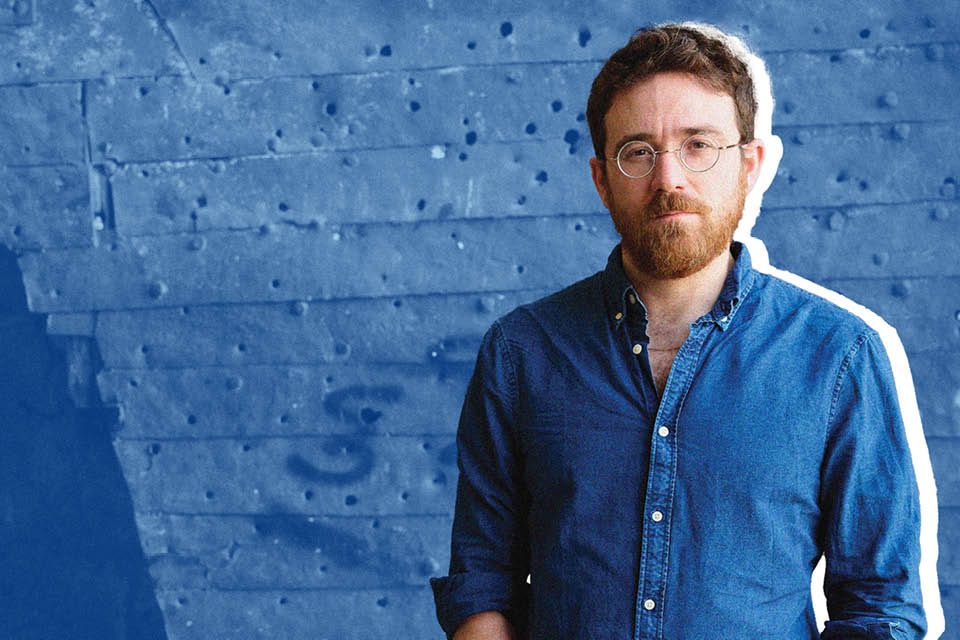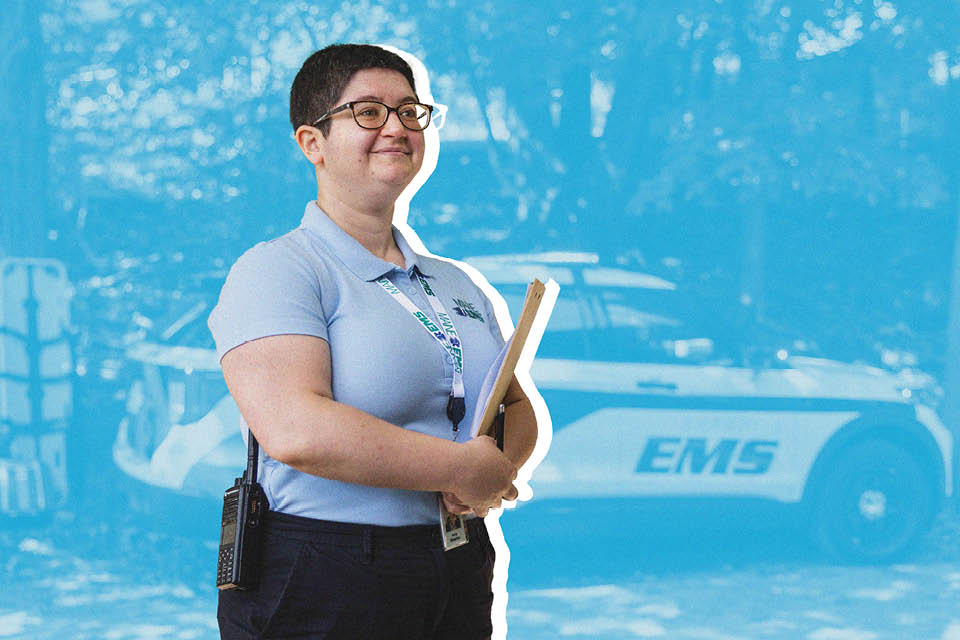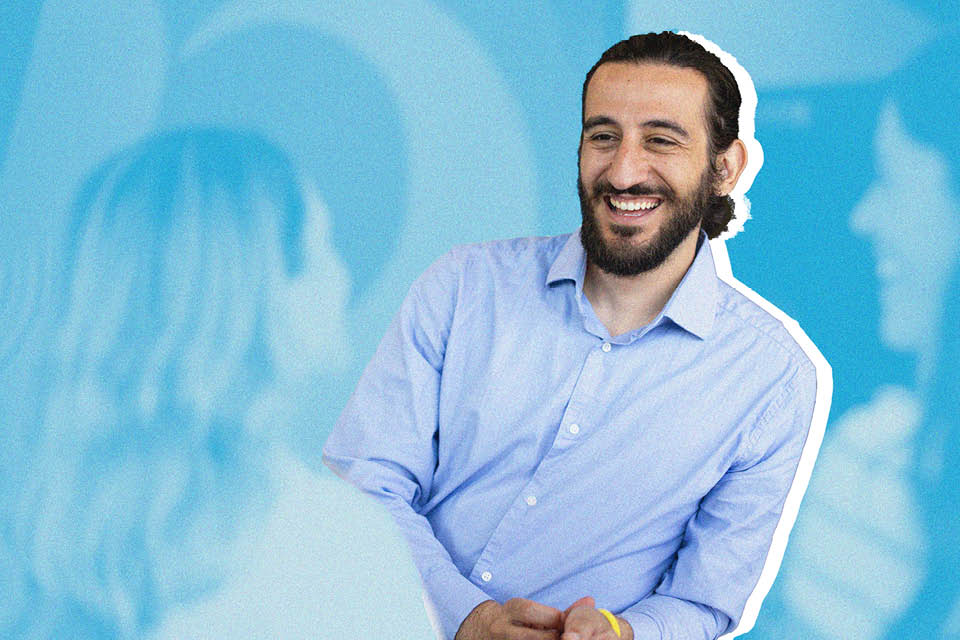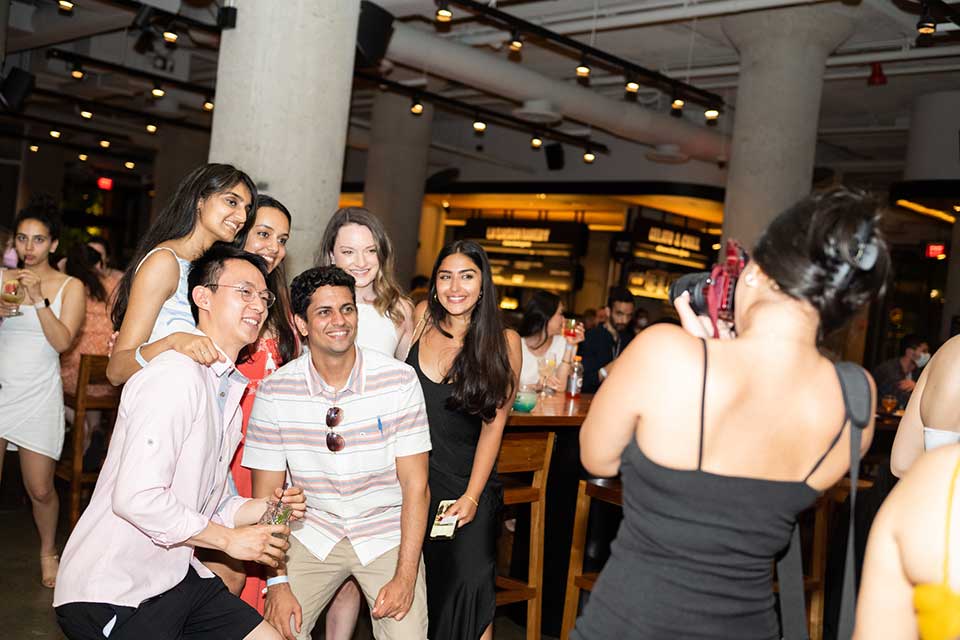Brandeis Alumni, Family and Friends
Pulitzer Prize winning journalist Natan Odenheimer ’15 is pursuing truth and understanding
Odenheimer is one of three alumni who have graduated in the last ten years who are being honored as a BOLD Rising Star.

Late last year, Natan Odenheimer ’15, a freelance journalist with The New York Times' Jerusalem bureau, co-wrote an article entitled “The Day Hamas Came.” The story is an hour-by-hour account of Hamas’ October 7th attack on one especially hard-hit Israeli village.
A week later, The Times published another story co-written by Odenheimer, this one titled “Where Was the Israeli Military?” The piece details a “disorganized” response by Israel to the initial attack, after which Israel launched the war.
Both stories were among seven submitted by The New York Times that earned the newspaper the Pulitzer Prize in International Reporting in May.
For this work, the Alumni Association has named Odenheimer a 2024 BOLD Rising Star. The award recognizes young alumni – BOLD is short for “Brandeisians of the Last decade” – who are already leaving their mark in their chosen field.
Can you tell us about your reporting that was recently awarded the Pulitzer Prize?
Our goal is to give English speaking readers access to understanding what happened on October 7th, and also in the war that Israel carries out, in response. As journalists, we want to understand why things happen, how dramatic events unfold, and to tell the personal human stories behind these big events. Yet we must also maintain a line of inquiry that is uncompromising in trying to understand the truth.
What kind of impact do you want your reporting to have, knowing that your stories are reaching a global audience?
I recently watched a master class with Bob Woodward, one of the two journalists who broke the Watergate story for the Washington Post in 1972. He said journalists shouldn't think too much about the impact of their stories. That doesn't mean we shouldn't hope our stories have an impact. Rather, let's say we’re reporting on someone who's corrupt in an important position. Our job as journalists isn't to make sure that person is kicked out of their job. Our job is to expose wrongdoings, and the rest should happen, not on its own, but by other people. I wouldn't want to work on an article thinking: “If I publish this story, this will happen.” I want to believe that if I do my job with high professional ethics, then what we're doing is going to bring some good.
How did you get into writing and reporting?
I was born and raised in Jerusalem, and I currently live in Jerusalem. I knew I wanted to become a journalist and a novelist from a very early age. I wrote my first newspaper article when I was 16, in the Jerusalem local newspaper, and over the last 10 or 15 years, I’ve been working as a journalist, a columnist, an investigative reporter, and documentary filmmaker. When I was at Brandeis, I was writing opinion pieces and articles for various American and Israeli newspapers, literally writing from our Ziv Quad suite at Brandeis. I also completed a novel when I was at Brandeis that was published in Hebrew in 2016, so right after I graduated. Around that time, I was also deliberating whether I wanted to stay in the United States to pursue advanced degrees or work as a journalist. Ultimately, I felt: “If I want to be a writer, if I want to be a journalist, I want to do it in the place that I care about the most.”
How else did your time at Brandeis inform the work you do now?
Brandeis was a fantastic, really eye-opening experience. I really learned how to write at Brandeis, and more importantly, how to rewrite and revise.
I also had great professors who taught me how to think and how important it is to really dig deeper, and that things aren't always exactly as we think they are. That there's always other perspectives to consider. I came to Brandeis already with a lot of questions about ethics. That’s why I studied philosophy. Brandeis gave me space to really try to find my own tools to understand and tackle the kinds of dilemmas that I was interested in. That really helped shape my moral compass.









